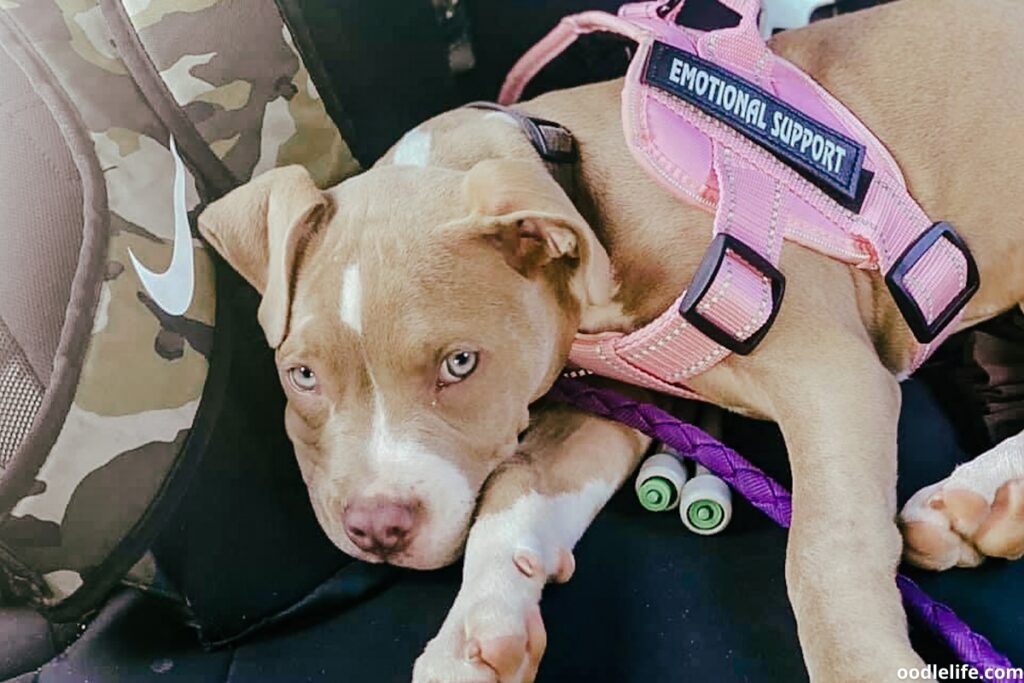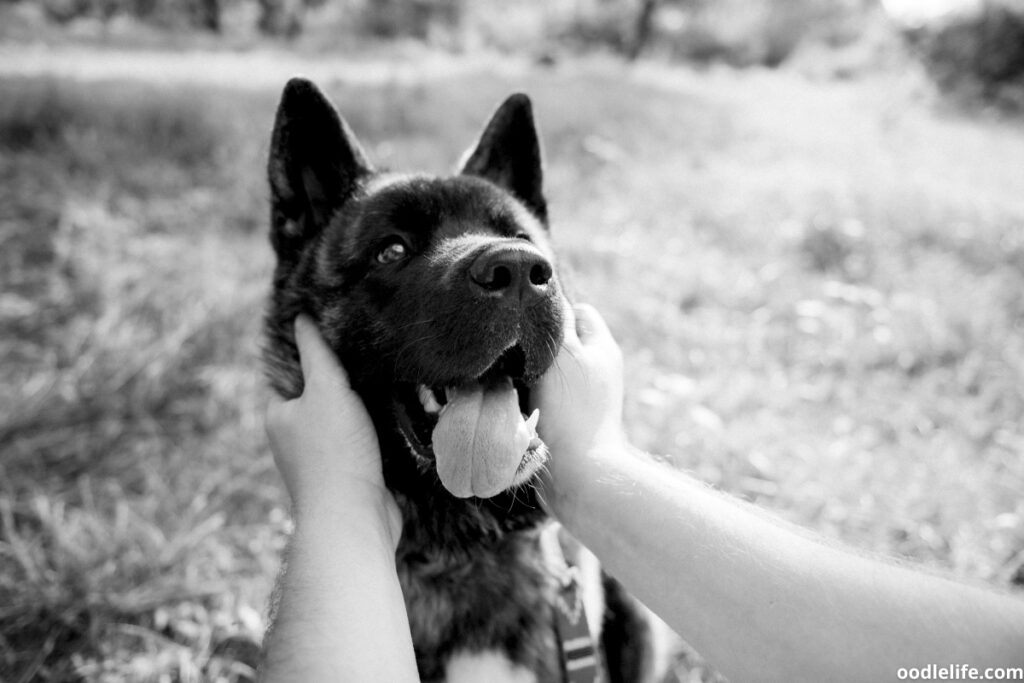Are Pitbulls Legal in Los Angeles? Discover the Truth
Pitbulls have long been a topic of controversy due to their reputation as aggressive and dangerous animals. In some cities, they have even been banned as pets. However, this raises a critical question – are pitbulls legal in Los Angeles?
As it turns out, owning a pitbull as a pet is not illegal in Los Angeles. While there are restrictions and requirements for all dog owners, such as a license, leash laws, and mandatory spaying or neutering, pitbulls are not singled out by breed-specific legislation.
That being said, engaging in dog fighting, which often involves pitbulls, is absolutely illegal and heavily penalized.
While public opinion on pitbulls may vary, it’s essential for potential and current pitbull owners to stay informed about the local laws and any potential changes. Ensuring your pitbull is a well-trained and responsible pet goes a long way towards breaking down stereotypes and negative associations with the breed.
Pit Bulls and Breed-Specific Legislation

What Is Breed-Specific Legislation (Bsl)?
Breed-Specific Legislation (BSL) is a set of laws that target specific dog breeds, primarily focusing on breeds that are considered to be potentially dangerous. One of the most targeted breeds in these laws is the pit bull.
You might be thinking, “Wait, pit bull? That’s not even a specific breed!”
And you’d be right! Pit bulls are actually a group of breeds, which makes identifying them and enforcing laws even more difficult 32.
These laws have been around since the 1980s, when the relationship between pit bulls and crime – especially in cities like Los Angeles – was a hot topic 7. Some people believe BSL is necessary to protect communities from dangerous animals; others argue that these laws discriminate against certain breeds and create a sense of fear around them.
PuppySpot is a reputable dog marketplace where you can browse and find compatible puppies right from the comfort of your home. They have placed over 200,000 puppies into homes in the US!
States with Bsl
BSL is not uniformly enforced across the United States; some states and cities have implemented breed-specific laws, while others prefer a more general approach to dog control.
For instance, in some parts of Florida, pit bulls have been at the center of controversy for decades 28. In response, the state has implemented various BSL policies targeting pit bulls. Meanwhile, Los Angeles County itself spends more than $250,000 annually enforcing its ban on pit bulls 2.
But it’s not all doom and gloom for pit bulls and their owners. Other states have adopted a more relaxed approach, favoring responsible pet ownership and education over breed-specific bans.
To sum it up, while the legality of pit bulls varies greatly across the United States, it’s crucial to be aware of the laws in your specific area. Remember, knowledge is power – especially when it comes to protecting your four-legged friends!

Pit Bull Laws in Los Angeles and California
Dangerous Dog Laws
In California, there are no specific laws targeting pit bulls as a breed. However, the state has enacted dangerous dog laws, which apply to any breed. If a dog is found to be dangerous or vicious, its owner can face severe penalties, such as fines or even imprisonment.
Los Angeles follows the same regulations as the entire state, categorizing dogs as dangerous based on their behavior, not their breed. So while pit bulls are not explicitly deemed illegal in Los Angeles, they can face consequences if they exhibit dangerous behaviors.
Spay and Neuter Requirements
Los Angeles has implemented a mandatory spay/neuter ordinance aimed at controlling pet overpopulation. Under this rule, all dogs older than four months must be spayed or neutered.
Pit bull owners must comply with these regulations too. Some exceptions apply, such as for dogs with medical conditions that make the procedure unsafe or service animals. Failure to comply can lead to fines or even the dog’s impoundment.

Leash and Kennel Regulations
Just like any other dogs, pit bulls in Los Angeles must be kept on a leash when in public. The leash cannot be longer than six feet, and the person holding the leash must be capable of controlling the dog. As for kennel regulations, the City of Los Angeles requires dog owners to provide their pets with a clean, safe, and secure living environment. While there are no specific regulations targeting pit bulls, they must be contained within their owner’s property to avoid trespassing or causing harm to others.
In conclusion, pit bulls are not illegal in Los Angeles or California; however, they must adhere to specific regulations regarding their behavior, spaying or neutering, and leash and kennel requirements. By doing so, pit bull owners can ensure a safe and friendly environment for their pets and the community around them.
Breed Restrictions Across States

Pit Bulls and Other Breeds
Ah, the classic debate about breed restrictions! From the feared Pit Bulls to the muscular Rottweilers, there seems to be a never-ending discussion about the dangers of specific dog breeds. In this section, we’ll be sniffing out (pun intended) the facts about breed-specific legislation across the United States.
Now, let’s address the, uh, elephant in the dog park: Pit Bulls. The American Pit Bull Terrier, Staffordshire Bull Terrier, and other similar breeds often face the brunt of breed restrictions. But they’re not the only ones. Rottweilers, Dobermans, German Shepherds, and even Huskies have found themselves on the receiving end of breed bans in some states and municipalities.
States with Banned Breeds
While breed restrictions might give some people pause (or paws), there is no federal law addressing breed bans in the United States. So, you can’t blame Uncle Sam for these restrictions. However, bans and restrictions do vary from state to state and within municipalities.
For example, in 2005 Denver, Colorado reinstated its ban on Pit Bull breeds after briefly lifting it due to a statewide law against breed-specific legislation. These laws are often a mixed bag, and the regulations regarding banned breeds can change as easily as the weather (and we all know how fickle Mother Nature can be).
Municipalities’ Role in Enforcing Bans
While there may not be any nationwide breed bans, local municipalities have the power to establish and enforce breed-specific legislation. This means that individual cities or counties might impose their bans or restrictions on certain dog breeds, making it a bit of a hit-or-miss situation for our furry friends.
You’ll find that some municipalities, like Los Angeles, don’t have citywide bans on Pit Bulls. Still, individual housing authorities within the city might implement their restrictions. It’s like a game of fetch – trying to get a handle on the ever-changing landscape of breed bans across the United States can be quite a challenging task.
So, there you have it. A glimpse into the world of breed restrictions in the United States. Now, go forth and keep yourself informed, because sometimes things can get a little… ruff.

Pit Bulls and Public Perception
Myths Surrounding Aggressive Behavior
One common myth about pit bulls is that they are inherently aggressive and vicious dogs. However, this stereotype is largely unfounded. Like any breed, a pit bull’s temperament is shaped by many factors such as lifestyle, socialization, and training. The belief that pit bulls are naturally aggressive has led to misrepresentation in the media and unjust breed-specific legislation.
In reality, pit bulls were historically bred to be gentle family pets and their loyalty and love for their owners can be remarkable. Their negative reputation has much more to do with human factors than any inherent aggression in the breed itself.
Studies on Attacks and Strong Breeds
While it is true that some pit bulls have exhibited aggressive behavior, this is largely due to factors such as irresponsible ownership and improper upbringing. In fact, studies have shown that pit bulls rescued from shelters and given proper care and training often display a calm and loving temperament.
Furthermore, the perception that pit bulls are one of the most dangerous breeds is not supported by data. Multiple studies have found that many other breeds, such as German Shepherds and Rottweilers, also have a proportionally high number of reported incidents. Consequently, it is essential for the public to understand that a dog’s behavior is highly dependent on its individual upbringing and not solely on its breed.
In conclusion, the legality of pit bull ownership in Los Angeles and other areas should not be determined by misconceptions and unfounded stereotypes. Rather, efforts should be made to educate the public about responsible pet ownership and promote positive interactions between dogs of all breeds and humans. This will not only help to dismantle harmful myths but also pave the way for a more compassionate society regarding our canine companions.

Legal Consequences and Other Penalties
Legal Liabilities for Owners
In Los Angeles, dog owners are held responsible for their pets’ actions. Pit bulls, though not illegal, are subject to breed-specific legislation due to their reputation. For example, a mandatory spay/neuter ordinance was enacted for pit bulls in San Francisco, which resulted in a decrease in their numbers. Owners of pit bulls and other breeds should be aware of potential legal liabilities they might face if their dog bites someone or causes property damage.
California Penal Code §399 outlines the circumstances in which a dog owner may be held criminally liable for their dog’s actions. If a dog kills or severely injures someone and the owner was aware of the dog’s vicious tendencies, the owner may be charged with a misdemeanor or even a felony, depending on the situation.
It’s worth noting that a dog doesn’t have to be a pit bull to land its owner in hot water with the law. Owning any breed with a known history of aggression puts owners at risk of facing legal consequences if their pet becomes a danger to others.
Penalties for Law Violations
There are various types of penalties that can be imposed for dog-related law violations in Los Angeles. In some cases, if a dog is considered a “public nuisance” or displays aggressive behavior, penalties might include the seizure and impoundment of the animal. But don’t worry, Rover’s not going straight to doggy jail without a fair hearing first – animal control officers must investigate and verify complaints in a timely manner.
Aside from potential animal seizure, financial penalties are also common. Fines can be imposed for failing to comply with mandatory spay/neuter laws, having an unlicensed dog, failure to abide by leash laws, and other violations. In severe cases, where a dog causes significant harm or even death, the owner may face criminal charges, including misdemeanors or felonies, as stated in California Penal Code §399.
To sum it up, dog owners in Los Angeles need to be aware of the breed-specific legislation and general dog-related laws to avoid potential legal troubles that may arise from their furry friend’s actions. A bit of education and responsible dog ownership can go a long way in preventing penalties and ensuring a harmonious life for both humans and their canine companions.

Responsible Pit Bull Ownership
Proper Training
Responsible pit bull ownership starts with proper training. It is essential for pit bull owners to educate themselves on the best methods for training their dogs to ensure their safety and the safety of others. Training a pit bull requires patience, consistency, and positive reinforcement. Keeping it short, sweet, and to the point, one could say: pit bulls are smart, and they love to learn!
Socialization, and Care
Socialization is another crucial aspect of responsible pit bull ownership. Pit bulls should be introduced to different environments, people, and other dogs from a young age to develop positive behavior traits. For instance, taking your pit bull pup to the park to meet other dogs, or enrolling them in a playful canine playgroup.
Additionally, proper care should not be overlooked. Providing your pit bull with a balanced diet, regular exercise, and proper healthcare will ensure their long-term well-being. After all, a healthy and active pit bull is a happy pit bull!
Community Efforts
In order to debunk the negative myths surrounding pit bulls, community efforts are vital. These efforts may include:
- Host informative events: Educate people about pit bulls and responsible ownership.
- Collaborate with shelters: Work together to promote adoption and provide resources for pit bull owners.
- Encourage responsible breeding: Aim to minimize backyard breeding and raise awareness about the importance of spaying and neutering.
These efforts not only create a supportive environment for pit bull owners but also help reshape the perception of pit bulls in the community.
Repealing BSL
Breed-specific legislation (BSL) has affected many responsible pit bull owners, restricting their dogs based on appearance and not temperament. Research has shown that BSL does not improve public safety and many organizations, such as American Cerberus advocated for its repeal.
Repealing BSL would allow responsible pit bull owners to keep their beloved pets without fear of seizure or euthanasia. By focusing on proper training, socialization, care, and community efforts, we can create a safe environment for pit bulls and their owners in Los Angeles and beyond.
Conclusion
In Los Angeles, pit bulls are not considered illegal. However, they are subject to certain restrictions and regulations within the city to ensure the safety of both the dogs and the residents.
For example, Los Angeles enforces responsible pet ownership norms, such as dog licensing, leash laws, and mandatory spaying or neutering, which is particularly emphasized for pit bull breeds. While these restrictions may seem stringent, their intention is to prevent issues such as illegal dog fighting, reduce overpopulation, and promote responsible guardianship.
Although pit bulls have a controversial reputation, it’s important to recognize that they are not inherently aggressive or dangerous. Like any other breed, pit bulls can have a wide range of temperaments and individual personalities. It’s up to the owners to ensure positive reinforcement and proper training, which can greatly impact how these dogs interact with society.
In summary, pit bulls are allowed in Los Angeles with adherence to certain regulations. Fostering a compassionate and educated approach towards these dogs can aid in dismantling misconceptions and stereotypes. So remember, it’s not about the breed, but about responsible ownership and a loving environment that can bring out the best in our furry companions.




![Teacup Poodle Complete Guide [+ Photos]](https://poodle.club/wp-content/uploads/2022/12/teacup-poodle-768x512.jpg)


